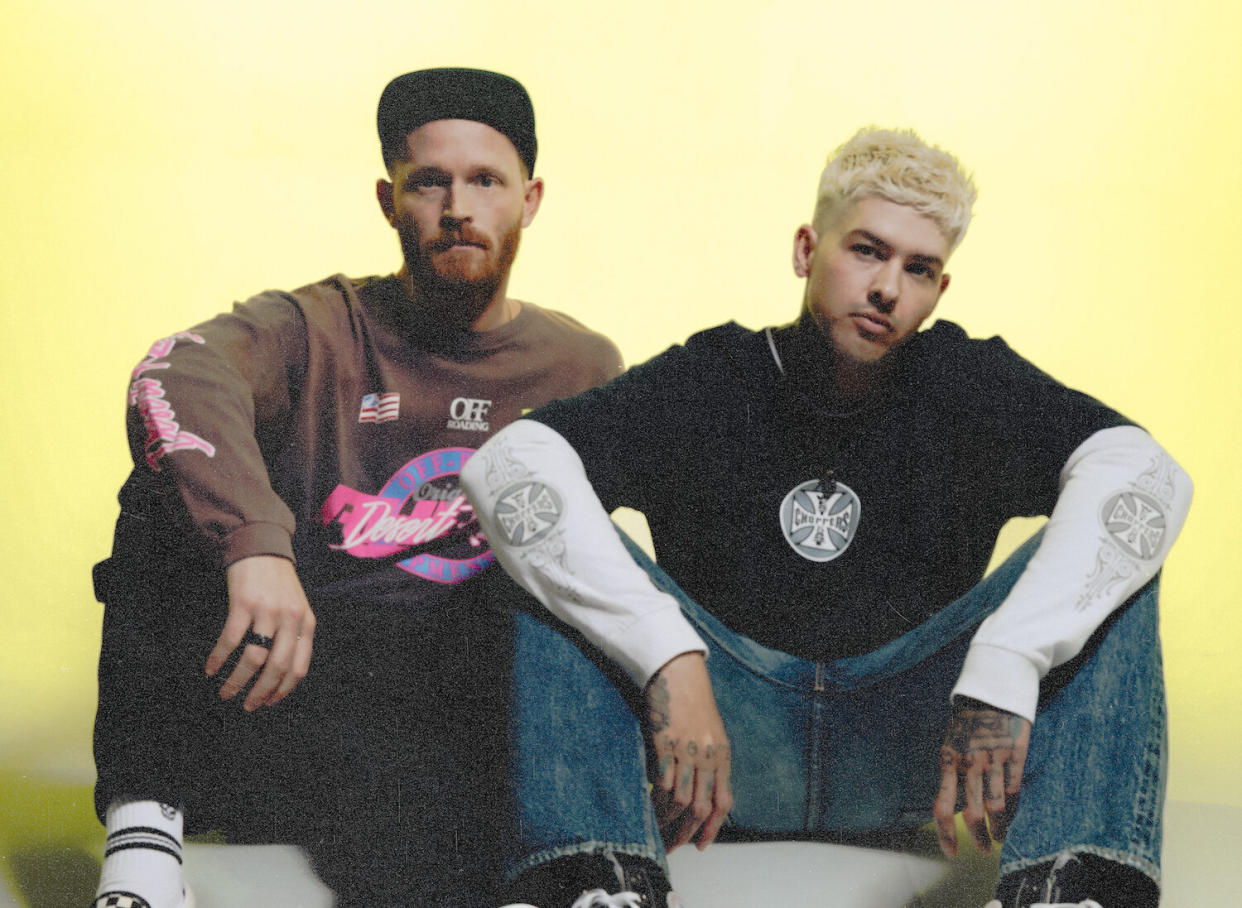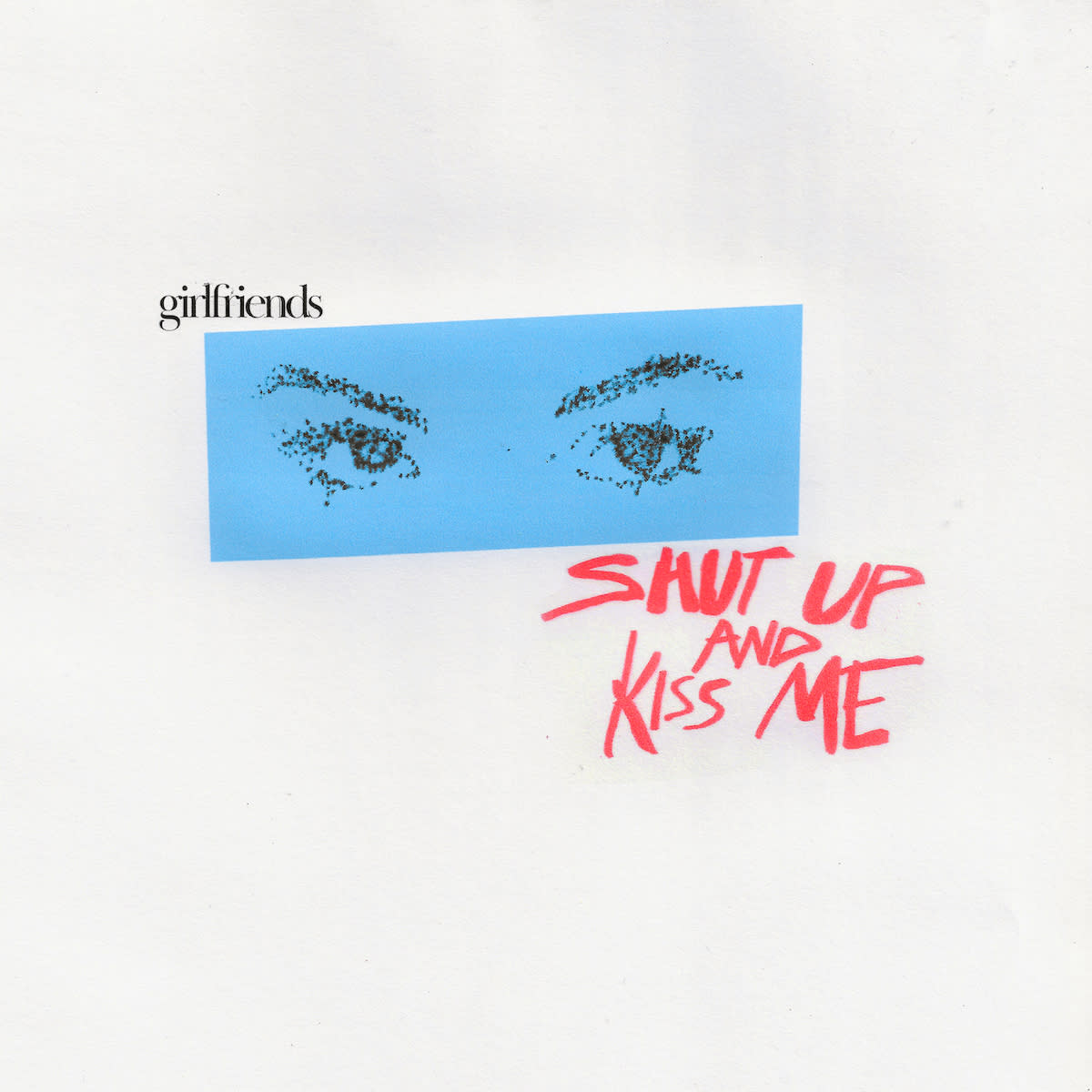Anyone Wanna Start a Rumor About girlfriends?

Travis Mills has heard the conspiracy theory about Avril Lavigne—the one where she actually died and in 2003 was replaced by someone named Melissa who looks enough like her to fool the masses.
Mills would be a good guy to ask, considering he’s already toured with “Avril.” And his band, girlfriends, is gearing up for a run through the U.S. with her again, beginning August 12.
More from Spin:
He acknowledges the fun in an urban legend. He wants one for himself. After thinking for a second, Mills tells me that his partner in girlfriends, drummer/multi-instrumentalist/producer Nick Gross, is actually a robot, and bringing a USB-C device to the show will mess with his circuits.
Gross confirms it’s true in a robotic monotone.
“I think it’s brilliant, and I want someone to start something like that about me,” he says. “Because if the legend lives on, that’s so cool. It takes me back to when we were kids, because you heard the Avril thing, you heard the Marilyn Manson thing [about having ribs removed]. There was all of this folklore about huge artists, and I feel like that’s not really a thing anymore.”
There just aren’t urban legends like there were when we were kids in the ‘80s, ‘90s, early aughts, or any pre-smartphone decade, when we were all able to fact-check the kid on the bus or various older brothers telling us a story about Richard Gere.
That flip-phone-and-beige-computer past is baked into girlfriends’ music, but it’s still a product of the digital present.

Pop-punk and its many branches are inherently referential. The genre is measured in waves, each class borrowing sounds from the forerunners, passing it off as their own to an audience young enough not to have experienced it the first time around, allowing them to relive something they didn’t live in the first place.
Today’s pop-punk is bound to the algorithm, which decides what songs will be hits more than any suit ever could. It chooses the snippets of tracks to soundtrack TikToks and Reels, and creates overnight successes without the need to promise some young upstarts that they’d be the next Nirvana or Green Day over a dinner they couldn’t usually afford.
Mills and Gross also think it has something to do with seeking comfort during lockdown.
“I don’t know about you, but for me, when we were all locked in our house, I found myself gravitating to everything I was into when I was young,” Mills says. “There was, like, almost nostalgia porn. I wanted to buy Pokemon cards. I wanted to buy LEGO sets. I was listening to all those old records from when I was 15. I was watching old movies and re-watching old TV shows. And no one wanted to listen to club anthems about throwing money in a strip club or popping bottles. I think it took everyone back to their earliest, fondest memories. Because that’s really all you had to hold onto.”
The most famous example of this was Post Malone covering Nirvana songs with the likes of Travis Barker (the constant presence and throughline in this current wave of pop-punk) during lockdown.
Mills himself pivoted from those club bangers just before the lockdown hit. Having spent some of the 2010s more in the hip-hop world, he felt the pull to his 2000s Myspace pop-punker roots, enlisting Gross to help on the back end—literally. They had known each other from a previous collaboration, but when Mills wanted to start a new band, Gross was his first call.
He was his only call, really.
“I was like, ‘Really? It’s only going to be drums and you? How’s that going to work?’” Gross says. “And it’s become pretty cool to have it that way and bring guitar players on tour with us that we like to fill out the stage if we want, or in the future build out more of a band around the two of us is a cool idea, but it’s awesome how you can be so different in today’s age in how you structure or position bands.”
Gross has been filling in on drums for California pop-punk royalty Goldfinger, and recently took over the job on a permanent basis. His bandleader in that endeavor, John Feldmann, ended up producing girlfriends’ first two releases.
And for all of the crying “poser” that some people might do about this current wave of pop-punk artists (not necessarily bands), having someone like Feldmann, Barker, or Mark Hoppus sign off is pretty much the biggest co-sign or validation that you can get. Fans who remember their Warped Tour heydays can complain about the authenticity of these artists’ punk bona fides (as punks always tend to do), but it’s hard to defend pop-punk against the supposed tourists or posers when these bands have the genre’s Mount Rushmore figures riding for them.” ?
It never hurts to let Travis Barker smack the hell out of the drums for you whenever possible, even when one half of your band is a drummer.
“Nick and I have both known Travis separately for a really long time,” Mills says. “He’s always been so amazing at keeping his ear to the street and finding new and cool artists. He works really closely with John [Feldmann] as well. So when we were making the first record, he would just show up at the studio a bunch of times. And he was like, ‘Do you guys want me to play on this?’ and we were like, ‘Yeah, you’re Travis Barker. Of course.’”
No wave lasts forever. The trends of today become cringe tomorrow. Just ask anyone over 30 what kinds of socks they’re supposed to be wearing—they have no idea. And right now, when the kids are discovering shoegaze, nu metal, and the skateboard-and-teen-comedy-flavored pop-punk of the 2000s, bands like girlfriends are going to have their time.
To see our running list of the top 100 greatest rock stars of all time, click here.
